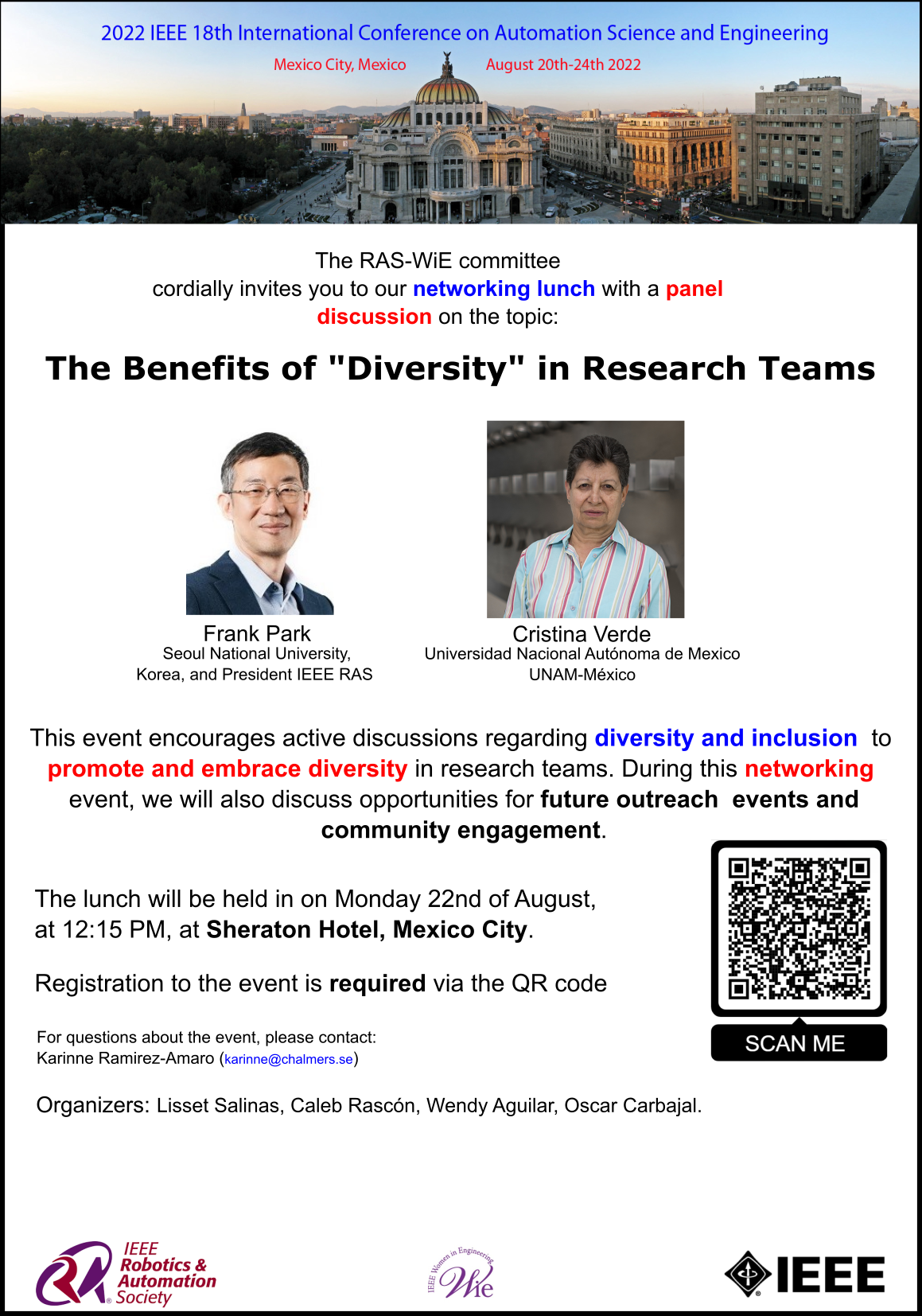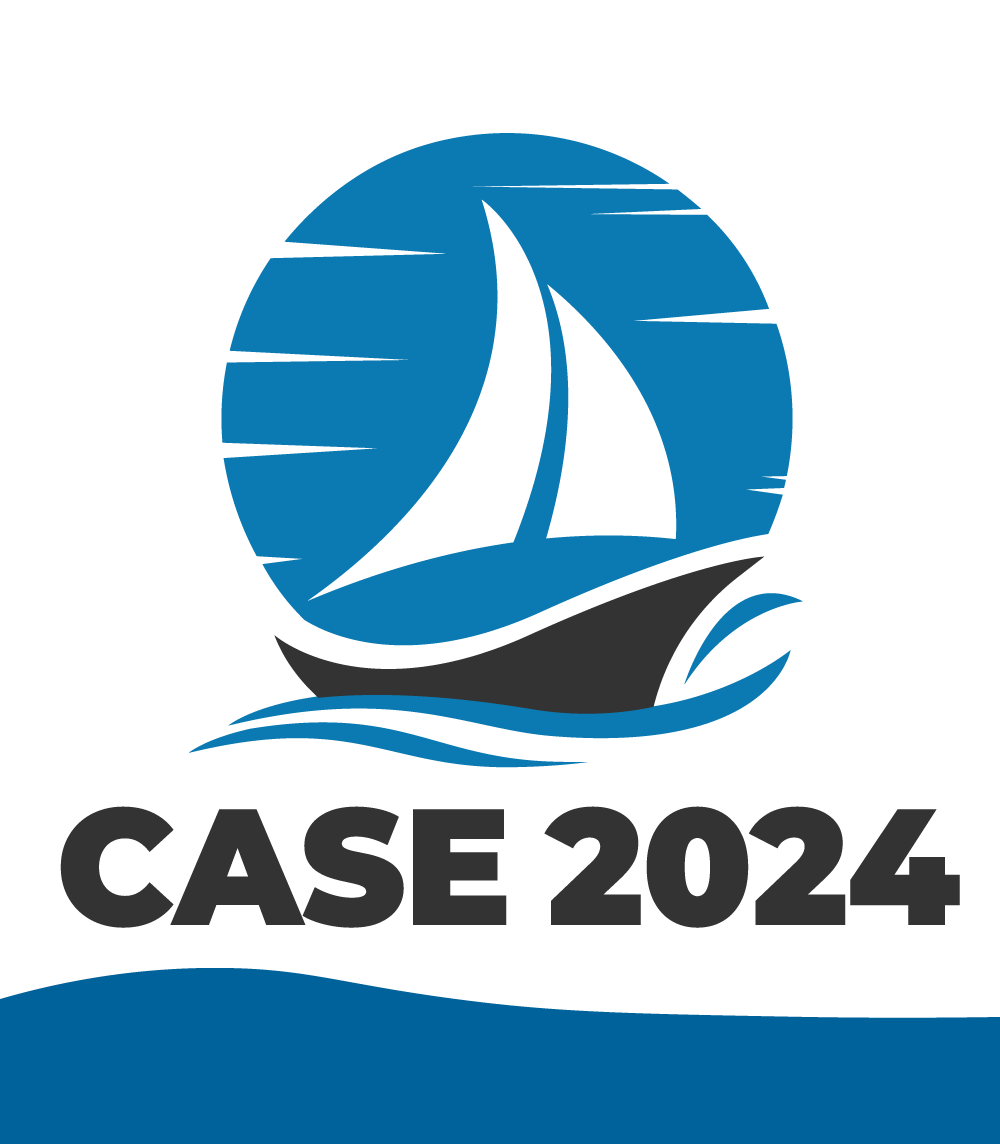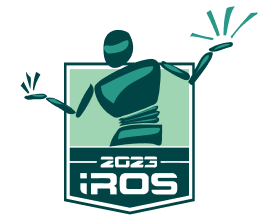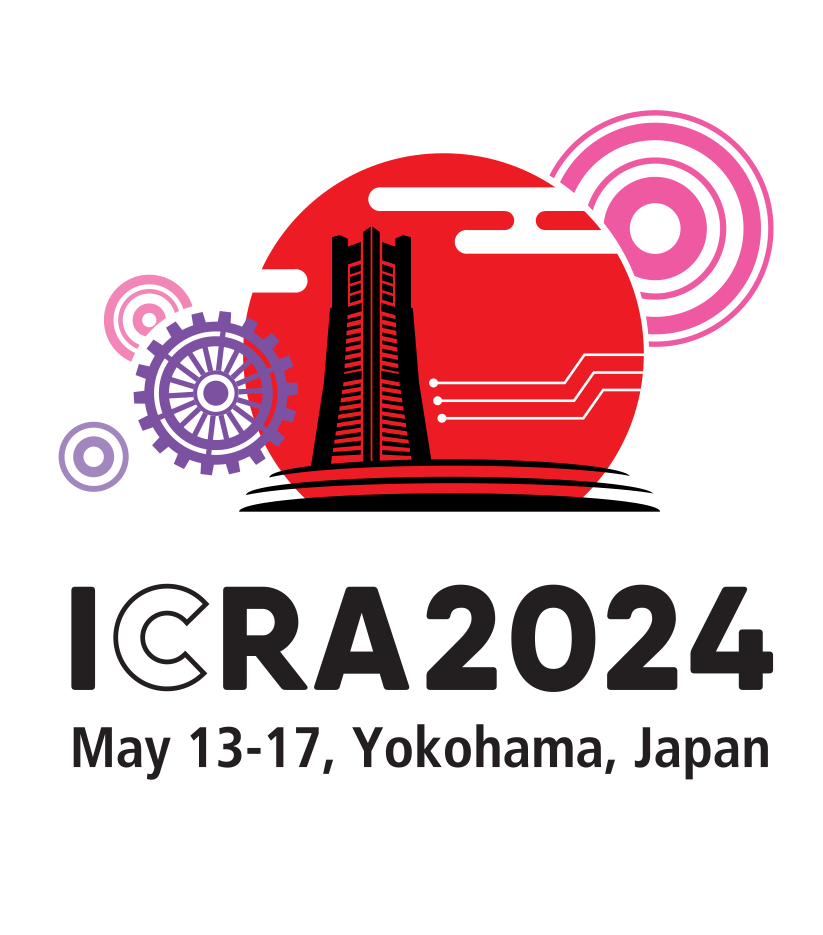Latest News
The IEEE Transactions on Medical Robotics and Bionics (T-MRB) is published under the joint sponsorship of the Robotics and Automation Society (RAS) (50%) and the Engineering in Medicine and Biology Society (EMBS) (50%). The T-MRB is soliciting nominations for Associate Editors to begin service in Fall 2022.
The current T-MRB Editorial Board includes 1 Editor-in-Chief, 1 Deputy Editor-in-Chief, 6 Senior Editors, and 24 Associate Editors (https://www.ieee-ras.org/publications/tmrb).
Associate Editors play a fundamental role in ensuring the quality of published articles and guiding the general development of the Transactions. The editorial support consists of a critical and careful review of the manuscript according to the IEEE guidelines, soliciting emerging topical articles for special issues, and guiding the overall direction of the publication (managed in Clarivate’s ScholarOne: https://mc.manuscriptcentral.com/tmrb-ieee). Furthermore, Associate Editors will also provide feedback from the readership through e-mail conversations, teleconferences, and a year meeting held in person, twice a year in conjunction with the IEEE International Conference on Robotics & Automation (ICRA) and either the IEEE International Engineering in Medicine and Biology Conference (EMBC) or the IEEE International Conference on Intelligent Robots and Systems (IROS).
An Associate Editor's term typically consists of a one-year probation period, followed by two years of additional service if the performance is satisfactory. T-MRB is looking forward to receiving applications from qualified candidates committed to ensure excellence and a timely service in their reviews. Candidates should have a solid technical background in T-MRB-related areas and excellent English language skills. Candidates should check the following keywords and include one primary keyword and at least another keyword in their application:
- health care applications of robotic and/or of bionic components and systems able to support prevention, diagnosis or treatment of human diseases;.
- devices for physical and cognitive rehabilitation;
- supporting systems for independent living;
- medical systems which mimic living organisms;
- surgical robots and technologies that intimately interact with the human body;
- bionic artificial organs;
- active implantable devices featuring direct interfaces to the human body.
Nominations should include a resume (not to exceed three pages), a complete list of journal publications, previous experience with publications as an Associate Editor or a Reviewer, or in other editorial capacities, and areas of technical expertise. Contact details of two references, under whom the candidate served in editorial positions before.
Please submit nominations in a single pdf file to the Editor in Chief, Prof. Paolo Dario at paolo.dario@santannapisa.it and in copy to T-MRB Editorial Office at tmrboffice@gmail.com by 15 AUGUST 2022. Any questions on this Call may be directed to tmrboffice@gmail.com
Haptics in the metaverse:Haptic feedback for Virtual, Augmented, Mixed, and eXtended Realities
Haptic sensations are a fundamental component of the user’s immersive experience when interacting in Virtual/Augmented/Mixed/eXtended Realities (VR/AR/MR/XR). In the last few years, we have witnessed the rapid development of many innovative devices and original techniques for providing haptic sensations, e.g., using force feedback, mid-air interfaces, props, or exploiting perceptual phenomena with cross-modal effects such as pseudo-haptics. While increasingly immersive and realistic experiences have developed at a fast pace, the emergence of a metaverse proposes new use cases where prolonged utilisation and social interactions become more frequent and effective than reality. This change in direction presents the haptics community with new challenges and opportunities. To that end, the goal of this Special Issue is to present innovative cutaneous and tactile technologies as well as their use towards the metaverse vision.
Image: julien Tromeur/Unsplash.
Topics of interest include:
● design consideration and evaluation of tactile haptic interfaces for VR/AR/MR/XR, specifically wearable and hand-held tactile devices;
● rendering and methods for tactile interaction in VR/AR/MR/XR;
● perceptual, behavioural, and cognitive studies on how tactile haptics can improve or alter human interaction, participation, training performances, immersion, or sense of presence in VR/AR/MR/XR;
● studies on tactile haptics investigating human perception, cognition, attention, new human-computer interaction paradigms, and user interface design and experience (UIX) during interactions in VR/AR/MR/XR;
● biometric sensing, such as GSR, eye-tracking, EEG, EMG, and heart rate, and other measurements for assessing objective and subjective performance metrics in VR/AR/MR/XR;
● use cases and applications of tactile haptics in VR/AR/MR/XR;
● computational modelling, analysis and data-driven evaluations of haptic interactions in VR/AR/MR/XR.
If you are unsure whether your topic of research fits the scope of this Special Issue, please contact the Guest Editors indicated below.
Timeline
Guest Editors
Eyal Ofek, Microsoft Research (USA)
Max Di Luca, Univ. Birmingham (UK)
Orestis Georgiou, Ultraleap (UK)
Konstantinos Koumaditis, Aarhus University (DK)
Francesco Chinello, Aarhus University (DK)
Claudio Pacchierotti, CNRS/IRISA (FR)
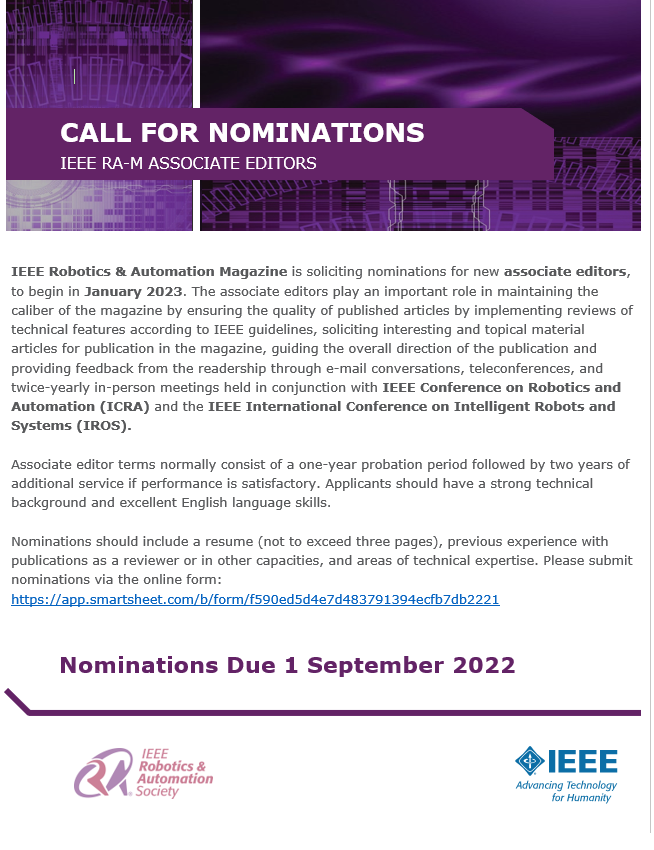
IEEE Robotics & Automation Magazine is soliciting nominations for new associate editors, to begin in January 2023. The associate editors play an important role in maintaining the caliber of the magazine by ensuring the quality of published articles by implementing reviews of

Any visionary leaders and RAS members who have frequently participated and contributed to IEEE Conference on Automation Science and Engineering, IEEE Transactions on Automation Science and Engineering, or Automation-related Technical Committees, and who are mature communicators and coordinators are eligible.
ICRA automation chair, TAB automation coordinator, and RA-L automation editor are visionary, experienced and dedicated automation leaders who are eager to build up the automation community while coordinating with robotic activities to cultivate, promote and contribute to the automation profession.
Submission deadline: 25 July 2022
Please send the nomination documents to Dr. Jingshan Li, jsli@tsinghua.edu.cn
IEEE Robotics and Automation Society Leaders- Ken Goldberg, Seth Hutchinson and Jing Xiao to give a panel discussion at Automate, the largest automation event in North America, on 8 June 2022.
Panel theme: "What's Next: The Cutting-Edge Research Driving Automation"
Time: 10:30-11:30 AM
Description: Researchers are developing advances in AI, Algorithms, and Cloud Computing that can enhance Logistics, Manufacturing, Healthcare, Agriculture, and many other automation applications. Researchers from Georgia Tech, WPI, Zebra Robotics, and UC Berkeley will present updates from their labs, answer questions about exciting new technologies under development, and explain how to keep informed about the latest research from organizations such as the IEEE Robotics and Automation Society: https://www.ieee-ras.org/
For more information visit Automate.
Member in the News: Interview with Craig Schlenoff On The Future Of Robotics Over the Next Few Years
Craig Schlenoff was recently interviewed by David Leichner for Authority Magazine discussing the future of robotics over the next few years. Click here for full article.

Dr. Craig Schlenoff is currently the Associate Vice President for Standardization in the IEEE Robotics and Automation Society and leads the Manufacturing Robotics Program at the National Institute of Standards and Technology. He has served as the Program Manager for the Process Engineering Program at NIST and the Director of Ontologies at VerticalNet. He also teaches two courses at the University of Maryland, College Park: “Calculus” and “Building a Manufacturing Robot Software System.” He received his bachelor’s degree from the University of Maryland, his master’s degree from Rensselaer Polytechnic Institute, and his PhD from the University of Burgundy (France).

Dear IEEE RAS Members,
As members of the global community of reseachers, scientists, and engineers who adhere to the universal principles of respect for human dignity and the free exchange of ideas, we are deeply concerned and saddened by Russian President Vladimir Putin's invasion of Ukraine.
This invasion, which has already caused significant human suffering, is a clear violation of global norms. Our hearts go out to the Ukrainian people -- to those in Ukraine who are enduring such cruelty and to those who find themselves refugees from the conflict -- and to all others who are suffering from the consequences of this tragic, senseless, and unjustifiable war.
Frank Park, Aude Billard, Seth Hutchinson,
Tony Maciejewski, Nancy Amato, Bram Vanderborght,
Yoshihiko Nakamura, Andra Keay, Maria Pia Fanti,
Patrick M. Wensing, Stefano Stramigioli,
Todd Murphey, Kyujin Cho
The IEEE Robotics and Automation Society membership will elect six new members of the Administrative Committee in 2022, each to serve a three-year term beginning 1 January 2023. The AdCom is the governing body of the Society.

RESPONSIBILITIES OF ADCOM MEMBERS
AdCom members must attend two formal meetings each year, one in conjunction with ICRA and the other usually in October/November in conjunction with another major conference. Each AdCom member is expected to serve on at least two boards and/or committees of the Society.
ELIGIBILITY
Any higher-grade member of the Society is eligible to serve and all higher-grade members plus graduate students may nominate candidates and vote.
TO NOMINATE A CANDIDATE
To nominate a candidate or offer yourself as a candidate, contact the Society at ras@ieee.org by 1 May 2022.
PETITION CANDIDATES
Candidates may also petition to be on the ballot. All persons who, by the deadline, submit petitions with valid signatures and IEEE member numbers with at least 2% of the year-end voting membership will be placed on the ballot. Only original signatures on paper or electronic signatures submitted through the RAS petition website will be accepted. Faxed or emailed signatures are NOT acceptable. Contact the Society at ras@ieee.org to obtain a paper petition form or to set up an electronic petition.
Completed petitions must be received by 1 May 2022 to be placed on the ballot.
SELECTION OF FINAL BALLOT
The Nominations Committee will consider all nominations and petitions and select the candidates to be placed on the ballot.
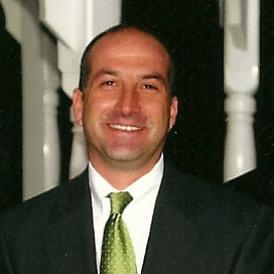
IEEE recently hired Pete Sobel as the first Executive Director of the IEEE Robotics and Automation Society. Pete has more than 35 years of experience creating, supporting and growing academic, industry and professional society programs. In recent years, Pete has led initiatives at Yale, Columbia and Rutgers Universities. His efforts increased industry-academic partnerships in support of science and engineering research.
Prior to those efforts, Pete was at IEEE for nearly seven years working to establish and develop IEEE’s global offices (Europe, India, Japan and China). In that post, he also led fundraising for the IEEE Foundation, and built key corporate partnerships. Pete also established and led IEEE’s initial Humanitarian Activities Programs including partnerships with the United Nations Foundation, ASME, and Engineers Without Borders.
Pete also directed global business development for Boston’s Museum of Science, expanding their brand, diversifying revenue streams and growing the international dissemination of their K-8 engineering curriculum and intellectual property. Most recently, he served as Director, Global Affairs at Optica (formerly OSA) where he was responsible for the Global Environmental Measurement & Monitoring and Global Health Initiatives.
Pete is eager to reconnect with IEEE colleagues, forge new relationships, and dive deep into the exciting world of Robotics and Automation.
The IEEE Robotics & Automation Society recognizes and congratulates the following individuals for their outstanding accomplishments and service to RAS and the robotics and automation community. They will be honored during an award ceremony, to be held during the IEEE International Conference on Robotics & Automation (ICRA 2022) in May. Please join us in congratulating these outstanding recipients!
RAS Pioneer Award
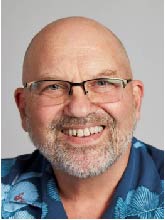
Marc Raibert - Boston Dynamics, Waltham, (MA) United States
"For pioneering contributions to the field of dynamic legged locomotion"
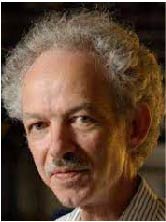
"For pioneering contributions to the field of robot mechanics, mechanism design and surgical manipulation"
RAS George Saridis Leadership Award in Robotics and Automation

Torsten Kroeger - Karlsruhe Institute for Technology (KIT) Karlsruhe, Germany
"For foundational research on real-time robot motion planning and leadership and service in conferences and society management"

"For leadership in robotics and automation through innovations in conferences and publications, broadly accessible education, and research"

Jing Xiao- Worcester Polytechnic Institute, Worcester (MA), United States
"For leadership, service, dedication, and innovation in RAS and Robotics and Automation community"
IEEE RAS Distinguished Service Award

Raja Chatila - Sorbonne University, Paris, France
"For his excellent, visionary contribution to governance, journals, conferences and multidisciplinary international initiatives linking robotics to artificial intelligence and ethics"

Aude Billard – EPFL, Lausanne, Switzerland
"For her leadership in RAS publication activities and distinguished services on RAS conferences and RAS committees."

Cecilia Laschi– National University of Singapore, Singapore
"For her outstanding contribution and leadership in Technical Activities, Conferences, and Administrative Committees"
Early Academic Career Award in Robotics and Automation
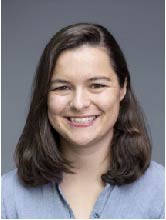
Chelsea Finn - Stanford University, Stanford (CA), USA
"For pioneering contributions in deep robotic learning, and their application to vision-based robotic manipulation."

Dorsa Sadigh- Stanford University, Stanford (CA), USA
"For contributions to learning and control algorithms for interactive robotics"
Early Government or Industry Career Award in Robotics and Automation

Joshua Mehling- NASA Johnson Space Center, Houston, (TX) USA
"For extraordinary contributions to the advancement of space robotic systems and their innovative spin-off application in industry and other government missions"
IEEE Robotics and Automation Award for Product Innovation

ANYbotics
Peter Fankhauser
"ANYmal: a versatile quadruped robot with high mobility for inspection and maintenance"
RAS Most Active Technical Committee Award
Technical Committee on Haptics
Chair: Claudio Pacchierotti, Co-Chairs: Manuel Cruz, Ki-Uk Kyung
Technical Committee on Model-Based Optimization for Robotics
Co-Chairs: Sylvain Calinon, Adrien Escande, Yue Hu, Patrick M. Wensing
RAS Chapter of the Year Award
IEEE Robotics and Automation Society, Kerala Chapter
Chair: Dr. Jisha V R, Co-Chair: Robin Tommy
RAS Student Chapter of the Year Award
RAS Student Branch Chapter Rajiv Gandhi Institute of Technology
Chair: Abdul Ahad, Co-Chair: Ajisha V
RAS Student Branch Chapter Universidad Nacional de Colombia Sede Bogotá
Chair: Valentina Hernández
The IEEE Robotics and Automation Society (RAS) is interested in encouraging students to play an active role in existing robotics standardization efforts. To help encourage student participation, funds have been set aside to provide partial travel support to students interested in attending the IEEE International Conference on Robotics and Automation (ICRA) in Philadelphia, PA on May 23-27, where numerous IEEE robotics standardization meetings will be held. We expect to award 3 - 4 travel grants for $1,000 each. While this will likely only support a fraction of the students’ travel expenses, it is hoped that this will make it a little easier for students to attend. Priority will be given to students that would not have otherwise attended ICRA (e.g., do not have a paper accepted), and priority will also be given to undergraduate students. You do not need to be an IEEE member to apply.
Travel awards will cover conference and/or workshop registration and partial reimbursement for lodging and travel. Reimbursements will be processed after attendance at ICRA 2022. Funding will be contingent on ICRA 2022 occurring physically (not virtually only). Selected students will be expected to participate in the full-day International Robotics Standards Coordination Effort meeting likely to be held the day before ICRA (22 May), as well as participate in at least one standards working group meeting. Students will also be required to write a 2 - 3 page report, submitted to IEEE RAS, describing their experiences at the conference and how they expect to use what they learned.
Any questions can be directed to Dr. Craig Schlenoff (Associate Vice President of Standardization in the IEEE Robotics and Automation Society Industrial Activities Board) at craig.schlenoff@nist.gov.
Applications are due 1 March 2022 with notification of acceptance expected on or around 15 March 2022.
Important Links:
- To apply for the travel grant: https://app.smartsheet.com/b/
form/ 1cdaa60cf0484d29a31da3ae3b5010 63 - IEEE RAS Standardization Efforts: https://www.ieee-ras.org/
industry-government/standards - ICRA 2022 Website: https://www.icra2022.org/
Special Issue on Small-Scale Robots in the Medical Context, From Modeling and Fabrication to Clinical Applications
Motivation
Small scale robotics is an emerging robotic field, promising novel revolutionary solutions in the healthcare (e.g., targeted therapeutic delivery, and minimally invasive interventions). For these miniature (millimeter to nanometer scale) robots to be successful, a huge progress has been made during the past decade which includes advancements in the fabrication of microrobots, and small-scale soft robots, as well as diverse actuation techniques and control strategies. All these efforts made robotics at small scale a thriving community within the wider robotics society. With many proofs of concept made reality over the past decade, now the community is moving toward in-vivo/preclinical and clinical applications of these robots and is attracting clinicians as well as medical robotics companies.
This special issue invites novel innovative papers in IEEE RAL format, that focus on the recent developments in the fabrication, sensing, actuation, and control of milli/micro/nanorobots in the medical context. More specifically, the special issue includes but not limited to the robotics and automation aspects of these miniaturized robots for the targeted drug delivery, diagnosis, hyperthermia, and minimally invasive surgery. We invite research works encompassing the in silico, in vitro, in vivo, pre-clinical, clinical studies of the medical milli/micro/nanorobot.
List of topics
Topics of interest for this special issue include and are not limited to:
· Soft Miniature Robots
· Swarm of micro/nanorobots
· Mechatronics Systems for Small Scale Robotics
· Sensing and monitoring at small scale
· Actuation of miniature robots
· Autonomous robotics at small scale
· Medical imaging for real-time control
Timeline
The special issue will follow the following timeline:
| 15 January 2022 | Call for Papers |
| 1 September 2022 | Papercept open for submission |
| 30 September 2022 | Submission deadline |
| 26 December 2022 | Authors receive RA-L reviews and recommendation |
| 10 January 2023 | Authors of accepted MS submit final RA-L version |
| 26 January 2023 | Authors of R&R MS resubmit revised MS |
| 1 March 2023 | Authors receive final RA-L decision |
| 15 March 2023 | Authors submit final RA-L files |
| 20 March 2023 | Camera ready version appears in RA-L on Xplore |
| 30 March 2023 | Final Publication |
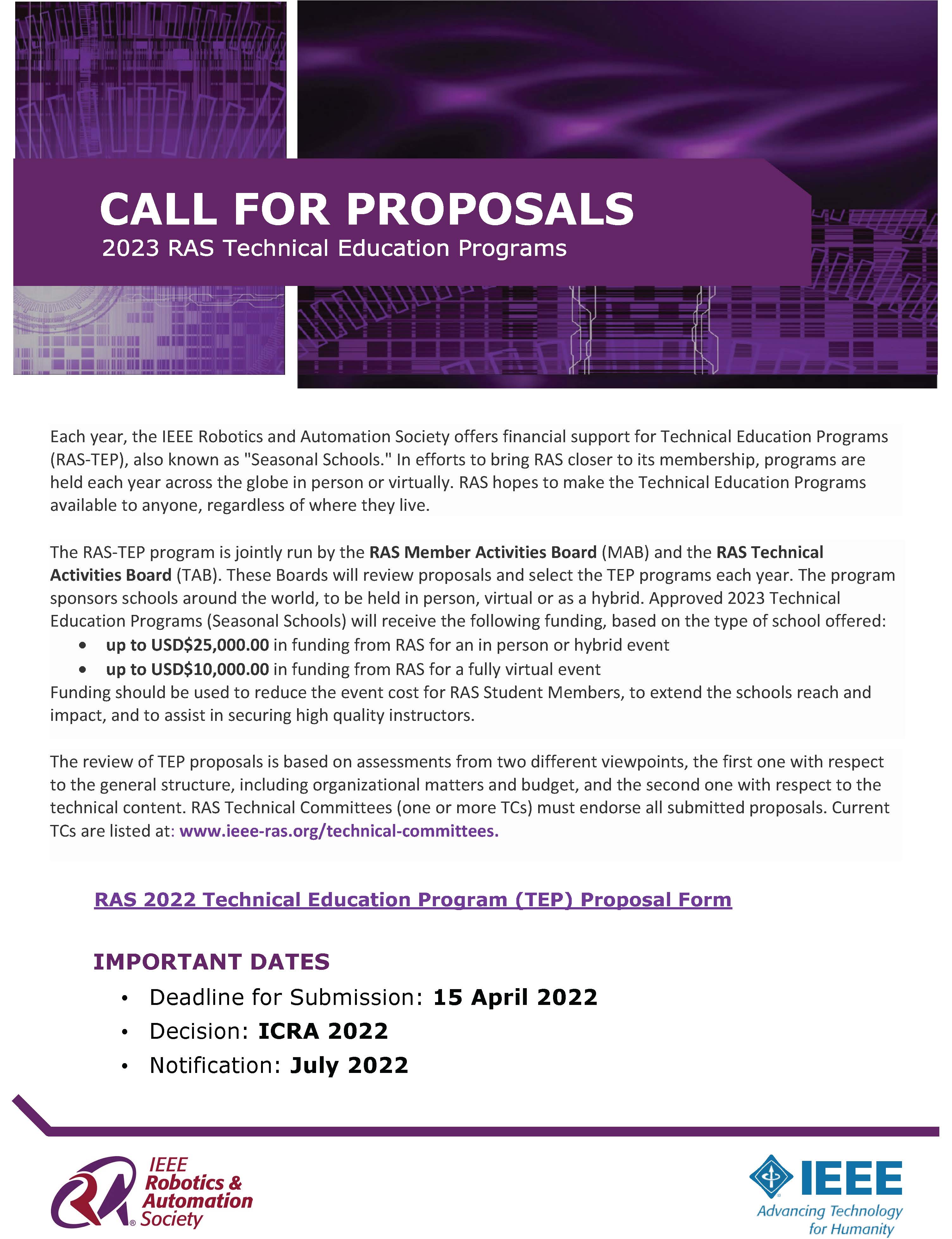
Each year, the IEEE Robotics and Automation Society offers financial support for Technical Education Programs (RAS-TEP), also known as "Seasonal Schools." In efforts to bring RAS closer to its membership, programs are held each year across the globe in person or virtually. RAS hopes to make the Technical Education Programs available to anyone, regardless of where they live.
The RAS-TEP program is jointly run by the RAS Member Activities Board (MAB) and the RAS Technical Activities Board (TAB). These Boards will review proposals and select the TEP programs each year. The program sponsors schools around the world, to be held in person, virtual or as a hybrid. Approved 2023 Technical Education Programs (Seasonal Schools) will receive the following funding, based on the type of school offered:
- up to USD$25,000.00 in funding from RAS for an in person or hybrid event
- up to USD$10,000.00 in funding from RAS for a fully virtual event
Funding should be used to reduce the event cost for RAS Student Members, to extend the schools reach and impact, and to assist in securing high quality instructors.
The review of TEP proposals is based on assessments from two different viewpoints, the first one with respect to the general structure, including organizational matters and budget, and the second one with respect to the technical content. RAS Technical Committees (one or more TCs) must endorse all submitted proposals. Current TCs are listed at: www.ieee-ras.org/technical-committees.
RAS 2022 Technical Education Program (TEP) Proposal Form
IMPORTANT DATES
- Deadline for Submission: 15 April 2022
- Decision: ICRA 2022
- Notification: July 2022
Written by: Raja Chatila, Antonio Bicchi, Wolfram Burgard, Alessandro De Luca and Yoshihiko Nakamura
The robotics community mourns Jean-Paul Laumond, a pioneer of non-holonomic motion planning and humanoid robotics.
Figure 1.: Jean-Paul Laumond at Workshop on the Algorithmic Foundations of Robotics (WAFR): Guanajuato, Mexico, 2008
The robotics community mourns Jean-Paul Laumond, a pioneer of non-holonomic motion planning and humanoid robotics.
- “Jean-Paul, tell me why do we have so much trouble to compute Hilare’s trajectories and maneuvers?” asked Georges Giralt one morning, late 1985. Hilare was an experimental robot developed at LAAS-CNRS in Toulouse, France, with two motor-driven wheels and a front free wheel.
- “Er… well… because it has wheels!” says Jean-Paul.
And he got to work to develop the theory of non-holonomic motion planning. This opened new avenues and immense possibilities in robotics.
It is a difficult exercise to write this column about a colleague and a friend. Jean-Paul Laumond has passed away after a sudden heart attack on 20 December 2021. Born in Donzenac, France in 1953, he was a high-school Mathematics professor when he decided to undertake a Ph.D. with Georges Giralt at LAAS-CNRS in Toulouse, France in 1980. After defending his thesis, he joined the French National Center of Scientific Research (CNRS) in 1985 and spent most of his career at LAAS. He moved to the Department of Computer Science (DIENS) of the Ecole Normale Supérieure in Paris in 2019, within the Inria team WiIlow.
From non-holonomic motion planning and control, to humanoid robotics, to modeling human motion, Jean-Paul was able to develop complex theories and put them to work in the real world. This includes the development of initial and pioneering solutions to the SLAM problem for the robot Hilare in the early eighties and founding the company Kineo CAM, which is now part of Siemens.
He was awarded the RAS IEEE Inaba Technical Award for Innovation Leading to Production in 2016. He was elevated Fellow of the IEEE in 2007 for his “contributions to robot motion planning and control”. He served two terms as a member of the RAS Adcom (2007-2012) and was Editor of the IEEE Transactions on Robotics (2008-2012).
Jean-Paul was also a leader. He was director of the Joint Japanese-French laboratory on humanoid robotics from 2005 until 2008. He founded the Gepetto team at LAAS to focus on anthropomorphic motion and was awarded a prestigious European Research Council Advanced Grant to study the computational foundations of anthropomorphic action.
Jean-Paul Laumond has been the first roboticist to hold the Liliane-Bettencourt Chair in Technological Innovation at the prestigious Collège de France from 2011 to 2012, a true ambassador of our field. In 2015 he was elected to the French Academy of Technology and then to the Academy of Sciences in 2017.
Many in our robotics family at large share memories about the fascinating scientific and human personality of Jean-Paul. He was a curious researcher who loved the challenges and discussing science at all levels. Ready to listen and exchange inspiring ideas with colleagues, and generous in giving advice and sharing his visions and enthusiasm with students. A kind and warm person with a charming smile and dry humor, though strong and passionate when arguing about culture, politics, or food (not to mention Poincaré and Hephaestus) - and always available to serve our community and discipline.
Jean-Paul was concerned about the perception of technology, and how the language used to describe robots skewed the understanding of their capacities in the general public. He was always at the center of enthusiastic multicultural discussions among the robotics researchers with his love to art, music, science, and mathematics, which also made him a leader and spokesman of robotics as both a science and a metaphysical reflection. In November 2021, just a few weeks before his passing away, he co-organized a multidisciplinary colloquium at the Academy of Sciences: “Myths and Machines. Robotics and Artificial Intelligence: thinking about technology today”. He left us too soon with this legacy.
Figure 2.: Jean-Paul Laumond in front of ten-foot-tall bronze Pinocchio statue - 2009 IROS in St. Louis (MO), USA
IEEE Transactions on Medical Robotics and Bionics (IEEE-TMRB) Special Issue / Section on Sensors for Physical Interaction and Perception in Minimally Invasive Robotic Surgery
Interaction Sensors for Minimally Invasive Robotic Surgery
This special issue/section aims at presenting contributions on sensors for monitoring and rendering physical interaction to increase perception in surgical robotics, such as, for example, force/torque, contact, proximity, virtual sensors and their corresponding feedback devices. Robotic surgery is a research field in continuous evolution and many aspects are still to be optimised to develop more complex clinical operations. Ten years ago, artificial intelligence was not considered for surgical systems; Da Vinci was the only surgical robot available on the market; 3D printing was a promising technology potentially useful for robotic surgery; and microsurgery was developed to increase precision. Today, the European Commission has defined the ethical guidelines of artificial intelligence in all sectors of technology, including surgical robotics; many surgical robots are being developed or tested in the market and 3D printing is a viable tool for medicine. However, one big problem that still remains unsolved is the sensorization of surgical tools: designs still rely on classical configurations, fabrication is very challenging, and sterilization of electronics prevents embedding sensors in the instruments. Furthermore, data collected by sensors are fed back to the users by simple devices that can rarely support a good perception, thus sensors and feedback devices should be optimized for joint operation, which is not presently done. This special issue/section will contribute to clarify the field, help defining the promising technologies and their applications, and list the progress in using interaction data to simplify surgery tasks. Interaction among sensors and new haptic devices for increasing perception in surgeons are others interesting aspects included in the topics of the special issue/section.
Topics include, but not limited to:
- Force/Torque Sensors for Surgical Robotic Instruments;
- Force Feedback, Estimation and Measurement;
- Optical Fibre Sensors;
- Tactile and proximity Sensors;
- Vision and Virtual Sensors;
- Design of Micro-Electro-Mechanical-Systems (MEMS) Load Cell for Surgery;
- Strain Gauges and Fibre Bragg Grating (FBG);
- Multi-Axis Force Platforms and Stewart Platform;
- Suture Tensile and Tool-Tissue Interaction;
- Smart Instruments and Tissue Palpation;
- Flexure Hinge and Force Decoupling.
- Modelling, Control and Design of Micro Force/Torque Sensors;
- Machine Learning and AI for Sensory data Analysis and Validation;
- Disposable Sensors and Sterilization;
- Design of Haptic Devices with Force and touch rendering for Telesurgery;
- Interaction Among Sensors for Perception in Robotic Surgery.
Manuscripts must be submitted on-line, through the IEEE submission procedure, available at: https://mc.manuscriptcentral.com/tmrb-ieee.
Authors should follow the regular procedure to submit a paper to T-MRB and they must clearly specify in the cover letter that the submission is intended for possible inclusion in the Special Section entitled “Interaction Sensors for Minimally Invasive Robotic Surgery”.
Guest Editors: Prof. Paolo Fiorini, University of Verona, Italy, and Dr. Giovanni Gerardo Muscolo, University of Verona, Italy.
Deadline for papers submission: 15 July 2022
Publication date: Volume 5, Issue 1 (February 2023)
Aude Billard will serve as RAS President Elect in 2022-2023. The RAS Administrative Committee elected Billard to serve as President Elect under President, Frank Park and to assume the Society presidency in January 2024. Most recently, she has served RAS on the Administrative Committee, as Vice President of Publication Activities.
Congratulations to the six RAS members elected by the membership to serve a three-year term beginning 1 January 2022. We wish the newly elected members of the Administrative Committee success and thank all candidates for their willingness to serve and for permitting their names to be included on the ballot.
| Arash Ajoudani |
|
Insitituto Italiano di Tecnologia
Genova, Italy |
| Nancy Amato |
|
University of Illinois at Urbana-Champaign
Urbana (IL), USA |
| Fumihito Arai |
|
|
| Karinne Ramirez Amaro |
|
Chalmers University of Technology, Sweden
Gothenburg, Sweden |
| Inna Sharf |
|
McGill University
Montreal, Canada |
| Kenji Suzuki |
|
University of Tsukuba
Tokyo, Japan |
2022 RAS Fellows Evaluated by RAS
Harry Asada – Massachusetts Institute of Technology, USA
“For the design, modeling, and control of direct drive robotic arms”
Stephan Biller – Advanced Manufacturing International, Inc. (AMI), USA
"For leadership in the applications of Internet of Things and Artificial Intelligence in manufacturing industry"
Darwin Caldwell –Italian Institute of Technology, Italy
"For contributions to Actuator Technology, Legged Systems and Soft Human Friendly Robotic"
Abderrahmane Kheddar – University of Montpellier, France
"For contributions to robotic haptics and humanoids"
Katherine Kuchenbecker – University of Pennsylvania, USA
"For contributions to interactive haptic systems and robotic touch perception"
Youfu Li – University of California, USA
"For contributions to active visual sensing using structured light pattern projection"
Juan Tardos – Universidad de Zaragoza, Spain
"For contributions to simultaneous localization and mapping with visual sensors"
Pietro Valdastri – University of Leeds, UK
"For contributions to medical capsule robots"
Richard Voyles – Purdue University, USA
"For leadership in the implementation of programs that foster robotics research and the robotics community"
Peter Wurman – Sony AI, USA
"For contributions to computational auction, multiagent systems and robotics"
2022 RAS Fellows Evaluated by Other IEEE Societies
Evaluated by the IEEE Aerospace and Electronic Systems Society:
Chee-yee Chong – USA
“For contributions to information fusion methods for multi-sensor tracking”
Evaluated by the IEEE Computational Intelligence Society:
Zhijun Li – Univ. of Sci. & Tech. of China, China
“For contributions to control systems for wearable robotics and biomechatronics”
Evaluated by the IEEE Control Systems Society:
Daniel Abramovitch – Agilent Technologies, USA
“For contributions to the development of algorithms for control of mechatronic systems”
Evaluated by the IEEE Control Systems Society:
Ming Cao – Engineering and Technology institute Groningen, Netherlands
“For contributions to multi-agent control systems for sensor, robotic and social networks”
Evaluated by the IEEE Control Systems Society:
R Scott Erwin – Air Force Research Laboratory, USA
“For leadership and contributions to the development, implementation and on-orbit demonstration of spacecraft control technologies”
Evaluated by the IEEE Engineering in Medicine and Biology Society:
Silvestro Micera – Scuola Superiore Sant'Anna, Italy
“For contributions to restoration of human sensorimotor functions using engineered neuroprostheses”
Evaluated by the IEEE Industrial Electronics Society:
Xinkai Chen – Shibaura Institute of Technology, Japan
“For contributions to nonlinear adaptive control and nonlinear observer design for mechatronic systems”
Evaluated by the IEEE Oceanic Engineering Society:
Hanumant Singh – Northeastern University, USA
“For development of localization and mapping techniques and autonomous systems for marine and polar applications”
More About IEEE Fellows

IEEE Fellow is a distinction reserved for select IEEE members. The honor is conferred by the Board of Directors upon a person with an extraordinary record of accomplishments in any of the IEEE fields of interest.
If you know of an IEEE colleague who is a Senior Member or Life Senior Member in good standing, has completed five years of service in any grade of IEEE Membership and who has made an outstanding contribution to the electronic or electrical engineering profession, you can nominate this person in one of four categories:
- Application Engineer/Practitioner
- Educator
- Research Engineer/Scientist
- Technical Leader
Additional information about the IEEE Fellow program, and a list of RAS Fellows is available HERE.


